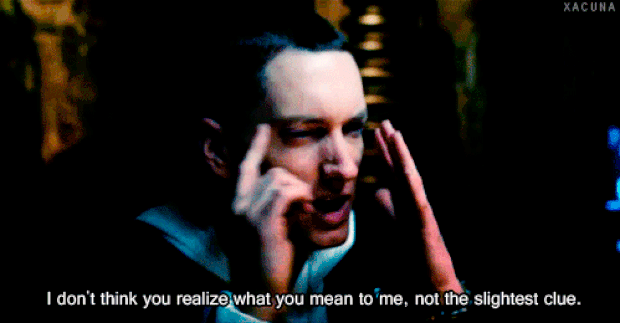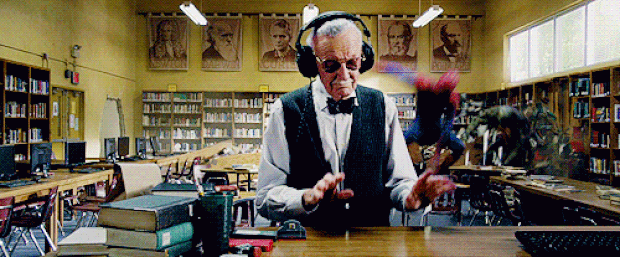The REAL Reason Men Are So Clueless When It Comes To Relationships
Clueless isn’t always cute.
 WeHeartIt
WeHeartIt There’s a word that is used to describe men all the time. It’s a loaded word, a negative word, and yet it recurs again and again whenever people are discussing men, particularly how men behave in serious relationships.
The word is “oblivious.”
As a man, I find that word objectionable. However, also as a man, I think it’s an extremely accurate way to describe my gender. Which isn’t cool, but, unfortunately, in my experience, I think it fits.
I am, in fact, an oblivious man. And I know far too many men who are even more oblivious than I am.
So what does it mean?
The dictionary definition of “oblivious” is “not aware of or not concerned about what is happening around one.”

But it doesn’t mean stupid or ignorant. When you’re oblivious, it’s a selective lack of awareness. The man in question might be one of the world’s greatest scientists or detectives and yet, with all that keen mental power at their disposal, they might have NO idea that the woman they see every day in the coffee shop really, REALY likes them.
And, to be clear, I’m labelling obliviousness as a male problem, because the word is almost exclusively used to describe men. If you Google “oblivious men,” you get thousands of links asking why men are so oblivious. If you Google “oblivious women,” you get thousands of links asking why men are so oblivious around women.
Why is that? What is it about our gender that makes men so clueless when it comes to relationship cues?
Personally, I think it has a lot to do with how men are raised.
When men are young, we’re told from an early age that there are things that men do and things that women do.
In case we get confused, they even have color-coded aisles at most department stores that say “Hey, the blue stuff over here should grab your attention. Just ignore the pink stuff over there. That’s for THEM.”
Parents, literature, movies, school dynamics — they all reinforce to men that there are certain things they’re responsible for and certain things that don’t require their attention at all. And those things that we’re told to ignore become HUGE blindspots for the rest of our lives.
For example, too often, men aren’t taught to pay any attention to empathy. It’s not a “male” trait, like chivalry or not crying when you’re hurt. But empathy is so important because it teaches us, as human beings, to look at the world from other people’s perspectives.
So, while men are spending the majority of their time thinking “I need to lead, I need to assert, I shouldn’t question myself,” unfortunately, they’re not thinking “Wait, why did the woman at the coffee shop touch my arm and tell me I was funny? Was she trying to send me a signal?”
It’s not just about men developing emotional intelligence. It’s about them learning to apply that emotional intelligence to other people without being asked to do so.
We don’t teach men at an early enough age to ask the questions that aren’t being asked.

They glance over at their partner — who, by all appearances, looks hugely pissed off — and they think, “Well, if something was wrong, I’m sure they’d tell me about it.”
NO. No, no, no, no.
Men are used to their moms, their dads, teachers, society as a whole, spoon-feeding them information. They don’t expect men to infer or deduce what people want or are feeling. They’re just TOLD, so they never expect that they have to do any work to figure things out.
It’s a cushy life for the men UNTIL they start getting into complex romantic relationships. And then they realize what a huge disservice society has done to them.
“Wait, you wanted WHAT? How was I supposed to know THAT? Laura told you that she liked me? Really? I had no idea!”
Now I’m mocking male obliviousness, because I suffer from it myself. (Just ask my wife.)
But, as a culture, we need to help men shed the “oblivious” label.

We need to stop coddling them, stop protecting them, and start teaching them the importance of empathy, reading people’s emotions, and not always accepting that things are as obvious that they might seem.
Because we liked the woman at the coffee shop too, dammit. We just had no idea that she liked us!

